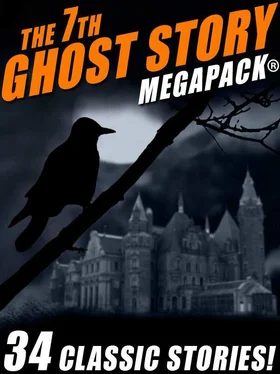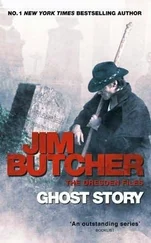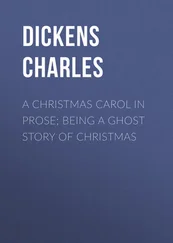“The speech of the poor ghost was not very eloquent, but his eyes had an intense, eager glare, which was terrible. Something—pity, fear, I do not know what—compelled me. I decided to do without that white and gold evening cloak. Instead, I gave $72.50 to the ghost and took from him a receipt for the sum, signed J. Billington Price. Then he smiled contentedly, thanked me with emotion, and returned to chair number thirteen. Several times on the journey, although I did not perceive him again, I felt dazed. When the train arrived at New York, and I, with the other passengers, dismounted, it seemed to me that a strong hand passed under my elbow, steadying me down the steps. As I walked the length of the station my bag—not heavy at any time—appeared to become weightless. I believe that the parlor-car ghost walked beside me, carrying the bag, whose handle still remained in my other hand. Indeed, once or twice I thought I felt the touch of cold fingers against mine. Since then I have no reason to suppose that the poor ghost is not at rest. I hope he is.
“But I never expected nor wished for the blue denims. The next day, however, a dray belonging to a great wholesale house backed up to our door and delivered a case of denims, with a receipted bill for the same. What was I to do? I could not go about selling blue denims; I could not give them away without exciting comment. So I furnished the cottage with them—and you know the effect on my complexion. Pity me, dear! And credit me, frivolous woman as I am, with having saved a soul at the expense of my own vanity. My story is told. What do you think about it?”
THE THIRTEENTH BOAT,
by George J. Rawlins
Originally published in Strange Stories , April 1940.
I’ve never seen a ghost—properly speaking. As I take it, a ghost is a disembodied spirit, or maybe an animated corpse, or perhaps a Zombie, and I can’t say I’ve ever seen either. But you have to believe in a lot of things you don’t really see—like the wind in that jib sail, say. You don’t see the wind, yet you know it’s there. If you knew nothing about wind, and saw its effect only once in a lifetime, you’d call it supernatural!
Maybe it was something like that with Jesse Autrey and Anabelle Tate. Never heard of anybody meeting up with the ghost of either of them. They’re both dead and properly buried by now, over on the mainland, and I reckon they’ll stay that way! But there was a time when Anabelle— Well, what I mean to say is that when fifteen or twenty men all see the same thing at the same time, and there’s no reasonable way to account for what they see, it sort of gets you to wondering.
It was this way—to begin at the beginning. Less than a dozen families lived on Pelican Key, and in a little settlement like that everybody knows everybody else’s business. So it wasn’t any secret that Jesse was going to marry Anabelle as soon as he could buy a boat of his own.
Jesse operated a little ketch which somebody let him have on shares, and you don’t get rich fishing when you have to divide the profits. It was a small, seaworthy boat, name Kingfisher , but the auxiliary had gone haywire and couldn’t be depended on. Jesse relied mostly on his sails.
We didn’t have any strict organization on Pelican Key. By common consent, old Cap’n Ludberry sort of managed things. We pooled our catch, and he bargained with the run-boats that brought us ice down from Miami and bought our fish.
We fished beyond the outer reef in the edge of the Gulf Stream, and generally stayed in sight of each other. In the afternoon we’d all come in together. If Jesse’s motor quit on him—which it usually did—he’d be left behind and get in after dark.
When that happened, especially if the weather was squally, Anabelle would cross the mangroves to the beach on the ocean side of the island, and swing a lantern to guide Jesse in! It wasn’t at all necessary, but she liked to do it and he got a big kick out of it. Of course we kidded him a lot, and got to calling her the “Lantern Girl.”
Then came that hurricane of two summers ago. We knew about it several days before, but the fish were running and the price was right, so we went out every day. It certainly seemed safe enough! The radio reported on the storm every three hours. We could follow its path on the chart and were ready to run if it turned our way.
The morning of the day that the strange thing happened that nobody could explain—though they saw them with their own eyes—the weather looked fine and the barometer stood at 29.90. The hurricane had worked up through the Bahamas to a point east of us. Everybody predicted it would keep on going northward and miss us entirely. We felt as safe as we’d ever felt when we left Pelican Key that morning.
The fishing was the best I’ve ever seen and we were making a real haul. We kept following the schools farther and farther out into the Stream. About noon, the wind dropped, but by the middle of the afternoon it began to blow a little out of the northwest.
I stopped hauling in fish long enough to look around me, and saw Cap’n Ludberry’s boat high-tailing it for shore with the old man’s shirt flying from the masthead. One glance at the sky was enough! I pulled my lines and followed him with my six cylinders wide-open.
We rounded Pelican Key and ran into the lagoon just as it began to blow in dead earnest. For the next half-hour everybody worked like mad putting out hurricane moorings and tightening down everything aboard. At last my boat was snug, and I crawled into my cabin. Not until then did I have time to wonder about Jesse, and if he’d made it to the key with the Kingfisher .
That’s all I could do—wonder. For after a hurricane strikes there’s nothing much you can do but stay put. That is, if the thing you’re holding onto doesn’t get up and leave you! So I rode it out aboard my boat.
The hurricane had suddenly moved shoreward. The center passed to the north of us, so we caught the west wind in the southern half of it, blowing straight out to sea.…
Not until the wind died the next morning could we get out to check up on the damage. It was plenty!
Then we discovered that Jesse hadn’t made it! He and the Kingfisher were missing—had never reached the lagoon!
When I went ashore, Anabelle’s folks were carrying her in from the beach. They’d forbidden her to go out in such weather, but she slipped from the house after dark. With the wind behind her she had crossed the Key to the beach on the ocean side, in an effort to show her lantern and guide Jesse in! An impossible job!
The lantern got smashed and she lost it. She couldn’t get back home against that wind, and got pretty badly banged up! How she managed to live through it, out there all night in the open with tree limbs flying through the air, is by me!
Well, we notified the Coast Guard about Jesse. They searched the area with planes and asked ships in the vicinity to look for him. It seemed almost useless for us to go looking for him, too, but we did. That offshore wind might have blown him clear to the Bahamas, if the Kingfisher hadn’t gone down, so we covered the sea as best we could all the way to Andros Island. All we found was part of a cabin roof which we thought belonged to the Kingfisher !
As time went on, hope for Jesse died. A fishing ketch can ride out most any squall, but a hurricane’s a different thing! There wasn’t a chance in a hundred that his boat hadn’t swamped. Still, he might have been picked up by some ship without radio, bound for the Lord knows where.
By the time Anabelle recovered from that night on the beach, people began saying her mind was affected. A lot of gossip among the women, I thought. But it wasn’t! She knew Jesse was dead, yet wouldn’t admit it even to herself!
Читать дальше












